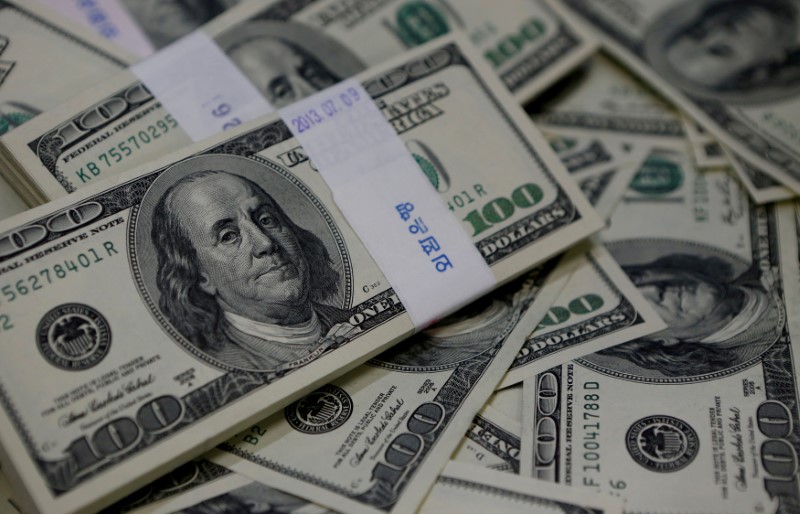By Shinichi Saoshiro
TOKYO (Reuters) - The dollar stalled against its major peers on Friday, its mild bounce earlier petering out ahead of the second quarter U.S. economic growth data due later in the session.
The dollar index against a basket of six major currencies was flat at 93.872 after edging up 0.2 percent the previous day.
The greenback, which had sunk to a 13-month low midweek after the Federal Reserve's policy statement suggested it was in no hurry to raise interest rates again, received a lift on Thursday as Treasury yields rose on the back of upbeat U.S. durable goods and trade data.
Market focus was now on the second quarter U.S. gross domestic product data due at 1230 GMT.
Economists expect the world's no. 1 economy to have grown around 2.6 percent in the second quarter, from 1.4 percent in the first quarter. A solid outcome will no doubt give the beleaguered dollar some respite from the recent selloff.
Dollar bulls have not had much to cheer about recently, hobbled by investigations into U.S. President Donald Trump administration's ties to Russia and the reduced likelihood of tax reform and infrastructure spending being enacted soon.
"The dollar's fall after the Fed meeting looked overdone, so it was natural for it to rebound," said Yukio Ishizuki, senior currency strategist at Daiwa Securities.
"And the dollar could find more bids if U.S. economic data turns out to be strong. That said, we are unlikely to see a return to the days when the dollar was the lone winner, because other countries are joining the Fed in trying to normalise monetary policies."
The euro is one of the currencies that has benefited from expectations the European Central Bank will begin phasing out its monetary easing sooner rather than later. It has gained roughly 11 percent against the dollar so far this year.
The common currency was last up 0.1 percent at $1.1689. It had fallen about 0.5 percent overnight, when it was knocked off a 2-1/2-year high of $1.1777. The euro was on track to rise 0.2 percent on the week.
The dollar was down 0.15 percent at 111.110 yen to reverse the previous day's modest gains. It was poised to lose 1.2 percent this week, during which it fell to a six-week low of 110.625.
The Australian dollar was 0.2 percent higher at $0.7979.
The Aussie has advanced strongly as the dollar floundered through most of the week, soaring to a 26-month high of $0.8066 on Thursday. Higher prices of commodities like copper and iron ore have also supported the currency.

The New Zealand dollar stood at $0.7505 after rising to $0.7557 on Thursday, its highest since May 2015.